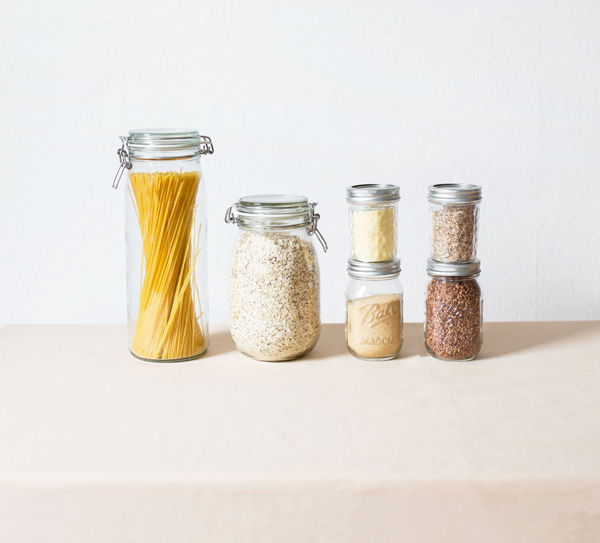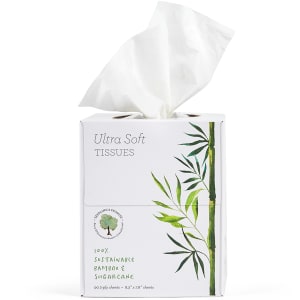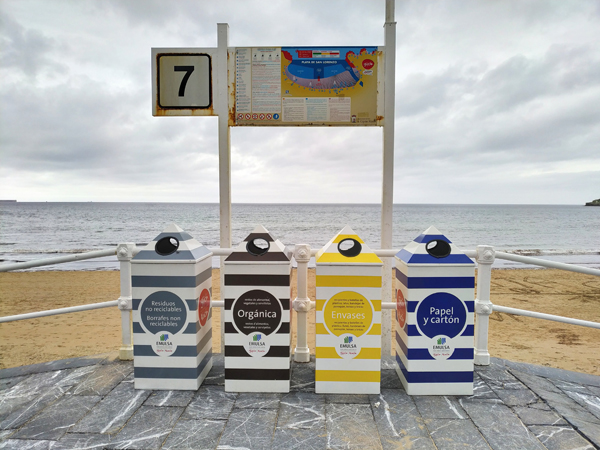26 June 2019, 23:42
By Syd Ulrich-Dogonniuck, Sustainability Content Writer for Realty Sage

The “Zero Waste” and “Waste-Free” lifestyle movements have definitely picked up momentum over the past few years; not only are people talking about reducing the amount of waste they send to landfills, but social media is practically buzzing with success stories of people ditching their old lifestyles for ones that truly support a circular economy . There are the Zero Waste YouTubers seamlessly showing you the ten minute version of a lifestyle transformation they have perfected for years. There is a wealth of inspiration from beautifully minimalistic Waste-Free Instagram profiles and Pinterest boards. There are Zero-Waste Challenges where groups and companies challenge participants to limit non-recyclable, non-compostable waste to one mason jar over the course of a year—and participants manage it the first go round! And even though each person may document their story differently—be it through a video, photos, or even the contents of a mason jar—each story pushes us to dig deeper into the tricky issue of our trash.
On average, each American sends roughly 31 pounds of waste to a landfill weekly, or over 1,600 pounds of waste annually. And where does all this trash go? Landfills. For years people turned a blind eye to what happened to their trash after it left the curb, but as landfills fill up and new ones threaten to open up near neighborhoods, parks and rivers, managing waste by simply creating less of it has become a very environmentally-friendly alternative. It’s a no-brainer really; if you create less mess then you have less to clean up. So in relation to trash: If you have a plan (think composting, recycling, donation centers) for everything that leaves your house, then there will be nothing left over for waste management facilities to “handle”.
While all the amazing lifestyle transformations online are truly inspirational, they can also be a little daunting. Going “waste-free” sounds a heck of a lot easier than it actually is considering we live in a very consumerism-driven society. As a result, while I think you should definitely get inspired by the Zero Waste stories you have heard and keep them in the back of your mind as the end goal, I also think you should start out with baby steps to get you started on your waste-free journey!
At least in my own personal experience, the first stage in going “waste-free” is actually just going “less-wastefully” (though it’s not very technical, you get what I mean). And this doesn’t require you to completely alter what you do on the day to day, just some small, easy changes to routines you already have! This way, though you will likely still have to take out the trash every once and a while, you will start cutting back on how much you send to the landfill and be solidly on your way to the environmentally-friendly lifestyle you want!
Here are 8 of the practices I’ve changed so far in my typical routines that were easy fixes but that over time will have a big impact:

-
Reusable Grocery & Produce Bags: This one was the first ultra-easy change I made. When I heard that 1 million plastic bags are used each minute and that each plastic bag is used for only 12 minutes before being discarded (while taking hundreds of years to decompose), I decided that investing a few dollars into 3 reusable shopping bags was a must. I have 1 large insulated bag and 2 large canvas-type bags and the trick is to leave them in your car! Once you unpack your groceries leave the bags by your door so you see them the next time you walk out to your car, then pop them in the car and you’ll be ready the next time you head on that weekly grocery run! Most of my bags are in funky, bright colors too so I really can’t miss them! I also have a few re-usable produce bags as these will help you reduce your plastic waste as well!
- Buy Local: This one isn’t as obvious at first glance how it will help you be waste free, but think of you local co-op or farmer’s market…most of the produce is piled or stacked for you to chose how much you want. In this way you can control exactly how much you take home, thus reducing food waste. Typically at co-ops and farmers markets the produce is also not individually wrapped or packed—allowing you to completely avoid the extra trash generated through packaging.
- Replace Paper Products with Bamboo Products: While paper products are made from trees, and trees are technically renewable, they really don’t grow as fast as we need them to in order to keep up with how fast paper products are used—at a rate of 749 pounds of paper products per American citizen per year!! Bamboo on the other hand can grow up to 90 cm in a day! Thus what it takes trees 20 years to do can be accomplished in just 3 months by bamboo! Most of your typical paper products can actually be made with bamboo pulp instead of wood pulp and, unless you’re a tissue paper aficionado, you won’t know the difference. The Seedling line by Grove offers some great bamboo alternatives for facial tissues, paper towels and bath tissue.

- Use Refillable Products, Not Single-Use Products: While most companies at this point are aware of how their packaging affects the environment, not all companies are really thinking outside the box on how to combat this issue. There are a few companies, however, that are really taking this issue to bat and offering innovative ways to get you the same, high quality products sans the waste associated with packaging. Soaps are a great example of where this comes into play: If you have a soap dispenser and run out of soap, is there really any need for a whole new soap dispenser? Nope! This is the idea behind companies such as Clean Cult, a brand that sends you soap and detergent refills in paper-based cartons that can be recycled once you transfer the product into your previous container.
- Zero-Waste Grocery Stores: Simply bring your own jars or containers and product bags and you’ll be set! This is a great way to cut back on the waste that comes with food packaging, and while it does require some planning (to make sure you have enough of the right types of containers) just know that this is a skill that you will develop with time. Over time you will see trends in your own shopping habits and realize what you do or don’t need to bring on your next grocery run. This is also a fabulous way to re-use old peanut butter jars and olive oil bottles. These 2 items are very, very hard to thoroughly clean and thus are not always recycled by recycling facilities even if you did your due diligence by putting the container in your recycling bin. I recently found a great state-by-state guide on where to find zero-waste grocery stores and I highly encourage you to check it out, even if you just ease into it by getting only a few things!

- Make a Recycling Plan: According to the EPA, approximately 1 in 5 Americans do not have access to a curbside recycling program. That being said, somehow three-quarters of the waste sent to landfills is actually recyclable! Thus it is up to all of us to actively make decisions that will be beneficial in the long run. What I have personally found useful (as someone who does not have access to curbside recycling) is to have a designated box for all my recycling and also make it a weekly habit to take my recycling to my nearest recycling center. Since most of my waste is in fact recyclable, my “recycling box” fills up quickly and can get overwhelming if I don’t deal with it in small increments. Making a weekly recycling trip means I can never get to the point where I say, “Man, there’s too much to even fit in my car, it would be so much easier to just throw out!” Additionally, the excuse that you don’t know where your nearest recycling facility is simply won’t cut it as there are plenty of websites and apps that allow you to find recycling facilities by simply entering your zip code!
- Recycle Old Electronics: Once a new version or upgrade of a phone or laptop is launched, it’s amazing how many people seem to have the newest, coolest product within days. What happens to the phones and laptops those people were using last week though? If most people are like me, the answer is nothing. Nothing happens at all. I think most people are aware that simply putting electronics in the garbage isn’t the answer, but then what is the answer? Recycling, of course! In my area Best Buy is a great easy option for electronic recycling—they take all your laptops, phones, iPads, cables, and even appliances. They ship these items back to manufacturers who have the capabilities to remove all the precious metals from the “guts” of each item and then put the metals right back into that next generation gadget everyone will want next month. Some items you bring in for recycling might even have some value left, which Best Buy will even give you a gift card for.
- Donate Clothes: This one might not seem like it would result in a huge difference because most people don’t get rid of clothing that frequently, but the clothing industry is actually incredibly wasteful. To make one t-shirt and one pair of jeans it takes more than 5,000 gallons of water!! So even if you are just donating one shirt or a pair of jeans, you are not just diverting waste from a landfill but also having a huge environmental impact! Donation centers like Goodwill will even help you with a little tax break, so what’s not to love?!
Hopefully some of these tips can help you transition to the waste-free lifestyle you’ve been working towards! Remember, living a Zero Waste Lifestyle is not like flipping a switch, it requires time to really make each lifestyle change into a habit. So don’t sweat it if you aren’t able to make tons of changes today or tomorrow, just focus on one or two changes and go from there. Be patient with yourself and I know you’ll start to see changes in your waste habits soon!
Check out these articles for more waste-free ideas:
Are We Wasting Our Waste?
Going Waste-Free Beautifully—How to Clean Up Your Beauty Routine
Connect with eco real estate agents near you with www.RealtySagePros.com
* This article contains affiliate links. Which means at no additional cost to you, if you click through and make a purchase, Realty Sage may earn revenue.
#zerowaste #zero #plasticfree #circulareconomy #foodwaste #goingzerowaste #lifestyle #sustainability #waste #recycling #recycle #reuse #ecofriendly #garbage #sustainableliving #sustainable #gogreen #zerowaste #eco #green #bethechange #greenliving #environmentallyfriendly
Back to news




